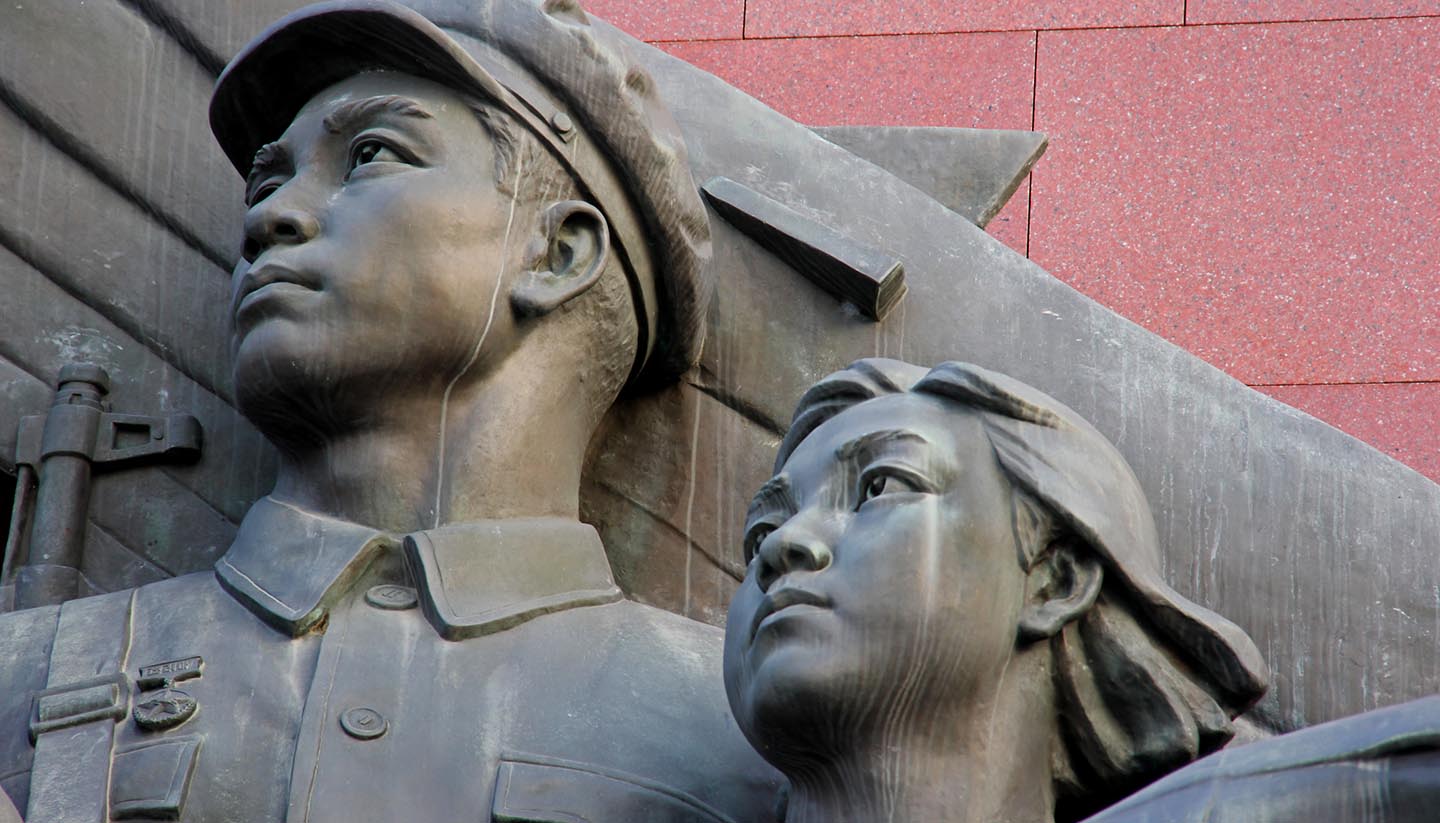North Korea History, Language and Culture
History of North Korea
The story of the Korean peninsula stretches far back into the annals of history. Following the ancient inhabitants of the island – it is believed to have been inhabited for half a million years, with the earliest pottery dating to around 8000 BCE – came the foundation of the Old Joseon Kingdom in 2333 BCE.
Centuries of independent states, occupied regions and royal dynasties followed, culminating in a brief Korean Empire between 1897 and 1910. Then the Japanese came and annexed Korea, distantly ruling the country for more than three decades. When Japan was defeated in 1945, a power struggle took place between the south of the peninsula, protected by US forces, and the north, backed by both the Soviet Union and by China. Two states were subsequently declared in 1948, with a division at the 38th parallel.
Unresolved tensions of the division led to Kim-il Sung's northern forces invading the south in 1950, sparking the costly Korean War. Despite the subsequent bloodshed, the conflict finally ended in 1953 with the peninsula still divided at those pre-war borders. Although a ceasefire was declared, there was never a peace treaty, so North and South Korea remains at war today.
Since then, the North's Democratic People's Republic of Korea has remained a Soviet style republic under the rule of the Kim dynasty – first Kim il-Sung, then Kim Jong-il and now Kim Jong-un.
In recent decades, while the South Korean economy has prospered, North Korea has remained heavily dependent on foreign aid. Following the collapse of the Soviet Union, that aid fell dramatically and the economic situation has been precarious ever since. With its people suffering food shortages and even famines, the country regularly accepts foreign aid.
Today, North Korea remains one of the world's poorest and least-developed countries. While there are regular talks held with foreign powers, the country's increasing isolationism and nuclear brinksmanship (resulting in sanctions) mean the future of North Korea is uncertain.
Did you know?
- Kim Jong-il reportedly spent £700,000 per year on Cognac, while his people scraped by on an average annual salary estimated at £956 per year.
- In 2013 Transparency International named North Korea joint most corrupt country in the world, along with Afghanistan and Somalia.
- North Korea bases its calendar on Kim Il-sung’s birth date: 15 April 1912.
- In 2014 a UN report into human rights abuses claimed that North Korean citizens face “unspeakable atrocities.”
North Korea Culture
Religion in North Korea
Buddhism, Christianity and Chundo Kyo are officially cited as the main religions.
Social Conventions in North Korea
Discretion and a low political profile are advised.
Photography: It is strongly advised to ask permission before taking a photo. Photographs of Korean officials or guarded buildings should be avoided.
Language in North Korea
Korean.


